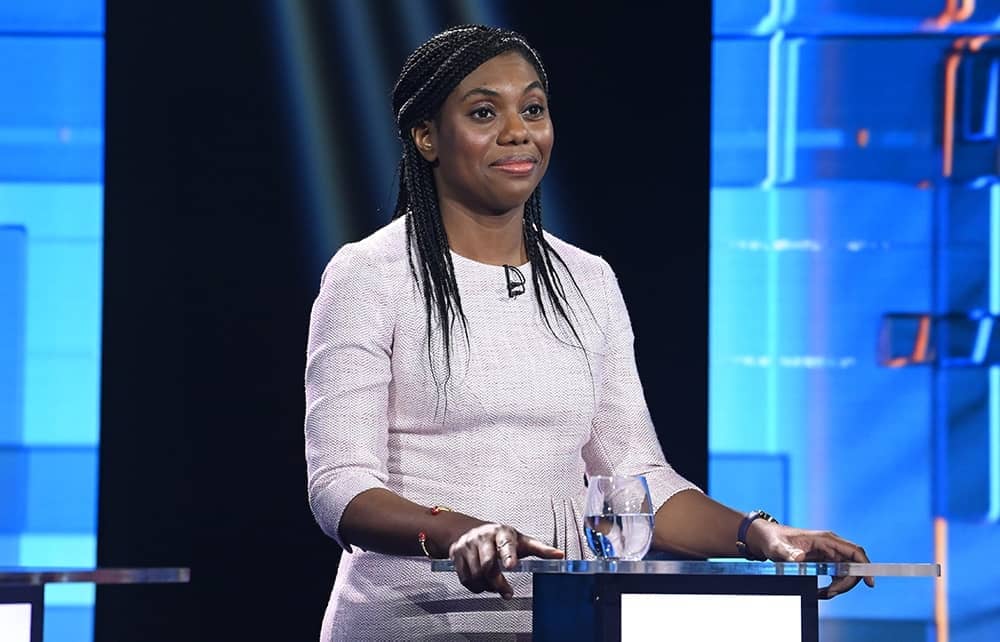When I was a teenage Tory activist in the mid-1990s, I hoped one day I’d be part of a leadership election campaign team. The energy and the intrigue looked so exciting. Eventually, I did end up right in the thick of it – but as a political spouse. These races have changed a lot since then. Michael Portillo’s plan to run against John Major was rumbled when his allies were found to have installed dozens of phone lines in a campaign headquarters: that was how you did it back in the 1990s. Now, it’s all done in WhatsApp groups. Kemi and I joke about what we would have made of each other then. I’m glad we didn’t meet: I’m not sure we have would have appreciated each other’s qualities at that time.
We met through the Conservative party more than a decade later, when she was the parliamentary candidate in a safe Labour seat. It was not an auspicious start; there was a degree of mutual suspicion. She was the upstart insurgent, I was the besuited Tory ex-public schoolboy. But she was desperate for activists and made me her campaign manager. We searched Brixton for Conservative voters and didn’t find many. But we did spend a lot of time together. I recall one of my desperate chat-up lines: I told her she possessed the ‘greatest political mind of her generation’. After the last couple of weeks, that doesn’t seem quite so silly.
I grew up in the one-nation tradition of the Tory party, and with hindsight was a ‘wet’ on pretty much everything. I even campaigned for Remain when Kemi backed Brexit. My greatest electoral victory was becoming a councillor in Merton, south London. I stood for parliament in Northern Ireland as the candidate for Foyle in 2015 and outperformed expectations when I won a whole 132 votes. My political ambitions ended when I was booted off the candidates list – by Kemi. She was a vice-chair of the party and wanted to avoid a conflict of interests. I am pleased she did: being an MP is a gruelling business. After Kemi won her seat in the 2017 election, Philip May convened a meeting of the ‘Denis Club’ (husbands of female MPs). Being an MP’s spouse, he told us, was the best of both worlds: 10 per cent of the pressure, 90 per cent of the fun.
There was no Kemi-for-leader campaign planned months in advance, no website waiting to be activated, no campaign video. The decision to stand was taken last minute, by six people sitting around a kitchen table just over a fortnight ago. After that, the race was exciting, exhilarating, exhausting, terrifying. I took the week off work, but avoided the temptation to change my email auto-reply: ‘I am currently out of the office as my wife is standing to become prime minister.’
They say you should never meet your political heroes. I am married to mine. I wonder what domestic life will be like when things get back to normal. All this recent drama, I remind her, doesn’t mean a lifetime free pass when it comes to divvying up household duties. In a newspaper interview a few years back, she said she was able to balance politics and family life because her husband picked up ‘a large proportion’ of the household chores. It’s a useful point of public record to deploy whenever there is a disagreement on whose turn it is to unstack the dishwasher.
Team Kemi was like a tech startup: a team assembled in a hurry. The intensity and the pace were incredible. There were no paid staff; just volunteers with a shared passion for renewal. As you’d expect with an insurgent campaign, everyone pitched in. I ended up doing everything from reviewing speeches to tapping up supporters, to advising on her wardrobe for debates (she always looks amazing) to – of course – looking after the candidate’s welfare.
Among the many controversies of the leadership campaign, one still seems to be unresolved: how do you pronounce Kemi’s surname? Is it either an anglicised ‘Bay-de-nok’ or a more authentic, guttural Scottish ‘Baa-de-noch’. My family have always preferred the anglicised version – but as good Unionists, we allow each to their own. Not a bad mantra for many things in life.
The final verdict from the men in grey suits of the 1922 Committee was as brutal as it was clinical. Kemi didn’t have enough votes, so that was that. But she was true to herself: brilliant, beautiful and brave. Now she is out of the race, the country will see less of her over the coming months, while I will see a lot more. That’s a trade-off I’ll happily take.






Comments